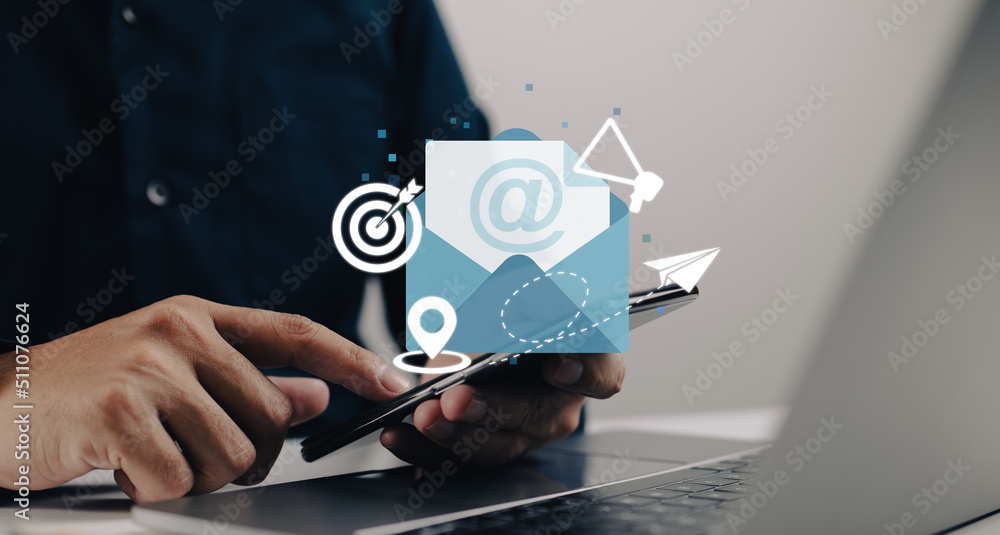Email marketing remains one of the most effective digital marketing strategies, delivering an average ROI of 36forevery36forevery1 spent. Whether you’re a small business owner, blogger, or marketer, mastering email campaigns can boost engagement, build customer loyalty, and drive sales.
However, beginners often struggle with where to start. How do you build an email list? What makes a high-converting subject line? How often should you send emails?
This comprehensive guide will walk you through email marketing best practices for beginners, providing actionable tips to create high-performing campaigns.
Why Email Marketing Matters in 2025

Email marketing is far from dead—it’s thriving. Here’s why:
✅ Cost-Effective: No expensive ads—just direct communication.
✅ High ROI: 36returnforevery36returnforevery1 spent (DMA).
✅ Personalization: Tailor messages for better engagement.
✅ Wide Reach: Over 4 billion daily email users (Statista).
Unlike social media algorithms, emails go straight to the inbox, giving you full control over your message.
Recognize the Best Practices For Growing Your Email List
An email list is one of the most crucial assets every business acquires over time. A small list can be more beneficial and engaged than a larger list where there is no engagement, interaction, or retention.
Step 1: Building A High Quality Email List
Make sure that you are not buying email lists as that can create proxy spam complaints which lead subscribers to lose interest in the long term, resulting in decreased engagements and retention to a business. Additionally, confirm that all email subscribers confirm their email as this decreases the number of fake sign-ups, leading to cleaner email lists.
Best Suggestions to Manage Your List Efficiently :
- Double Opt-In – Confirm all email address where a subscriber signs up as confirming emails helps decrease the number of fake signs ups and provides a cleaner list.
- No Buying Lists – Purchase lists will spam complaints as well as a lowengagement rate over time.
- Avoid Buying Lists – Purchasing lists are harmful as that can create p
- Pro Tips – Leverage tools like mailchimp, hubspot, or convert kit to manage your lists more efficiently.
Step 2: Crafting Irresistible Subject Lines
To develop an effective subject line, leveraging the ones that work best can help capture agenda items within emails settled on organize business for maximum productivity policies to drive productivity and capture multiple solutions. This is beneficial as a caller being unable to open a specific dial tone is determined by the subject line selected when sending the email.
Step 3: Email Content that Converts
Your email subject lines do not matter if the email in question does not generate value and action once opened.
Your email copy must:
- Be short and easy to read
- Have a strong CTA such as “Shop Now,” “Download Here,” “Claim Your Discount.”
- Be informative and integrate emotionally viable stories
- Be mobile friendly as over 60% of audience read emails on their phones.
📌 Example of a High Converting Email Structure
Warm Greeting – “Hi [Name],”
Clear Value Proposition -” Here’s your exclusive offer,”
Strong CTA Button: “Redeem Now”
PS (Optional) – “You Only Have 24 Hours!”
Step 4: Personalization & Segmentation:
Like mentioned above, generic emails and messages = low engagement.
Use first names in subject lines & greetings.
Create specific discounts just for them based on their past orders such as birthday and anniversaries.
Segmentation Strategies
New Subscribers → Welcome series.
Inactive Users → Re-Engagement Emails.
Repeat Buyers → Loyal customers segment with specific rewards.
💡 Example
“Sarah, your favorite shoes are back in stock,” (for people who bought similar items in the past).
“New around here? Get 10% off your first order,” (for new subscribers).
Step 5: Email Send Times Optimization
No planner would do a good job for their clients without considering emails arrived on time, so the opposite would result in missed opportunities which no single business would want.
Best Times to SEND Emails:
📅 B2B: Tuesday-Thursday 9AM – 12 PM
📅 B2C: Weekends and Evenings (during high shopping traffic).
How Frequently Should You Send Emails?
Newsletter: 1–2x a week.
Promotional: 1–2x a month.
Automated (welcome, abandoned cart): Action-driven. Automatic.
⚠️ Avoid spamming! If unsubscribe rate rises, slow down email frequency.
Step 6: Designing Emails for Mobile
60% of emails opened are on mobile—so you know what to do.
Mobile Optimization Tips:
✔ Use Responsive Templates (test on phones)
✔ Short Subject Lines (<50 characters)
✔ Easy To Click Sizes For Big CTA Buttons
✔ Minimized Images (slow loading leads to high drop offs)
📌 Litmus and Email on Acid for Testing
Step 7: Monitoring & Improving Performance
Use metrics to guide decisions and improve results.
Important Metrics to Check
📊 Open Rate (Are subject lines working as intended?)
📊 Click Rate (Are links engaging?)
📊 Conversion Rate (Are drives emails actually driving sales?)
📊 Bounce / Unsubscribe Rate (Are emails relevant?)
💡 Provided by: Google Analytics, Mailchimp reports, HubSpot.
Step 8: Common Email Mistakes
Ignoring GDPR/CAN-SPAM regulations → legal problems.
No Unsubscribe Options → receive spam complaint fairly quickly.
To many images → blacklisted meow that emails get marked as spam.
Send, No Test, get broken links and typos uncovered.
⏩ Laws in bountiful need to be followed.
Ends before it begins, have quality in design and proofread before sending.
Message Summary: Start With Email Marketing Today
Your organization can be immensely profited by the use of email marketing, because it has proved to be one of the most cost effective means. In adhering to best practices in regards to this technique, you are bound to:
- Significantly improve conversion and sales rates.
- Increase your audience retention and loyalty.
- Improve click and open rates.
You can further this cause by subscribing to any of the email marketing tools available such as ConvertKit, Klaviyo and Mailchimp, and you will see your business flourish.
Email Marketing FAQs
Q: How frequently should I blast out Emails?
A: 1-2 times a week to begin with.
Q: What is the most recommendable free email marketing service?
A: Burning Question: What service can help me avoid putting my clients into spam?
